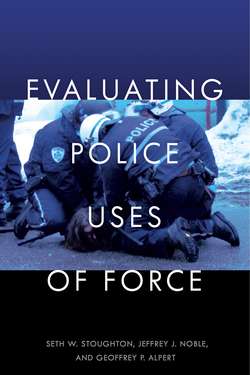Читать книгу Evaluating Police Uses of Force - Seth W. Stoughton - Страница 48
На сайте Литреса книга снята с продажи.
Regulatory Law
ОглавлениеAs described above, almost all of the states require officers to earn and maintain professional certifications, and most states have the authority to revoke those certifications under certain circumstances. Sixteen states can revoke an officer’s certification only after the officer is convicted of a crime, while other states can revoke an officer’s certification if they find that the officer engaged in specified types of misconduct, independent of any other civil or criminal remedies.15 Even in the states that either lack revocation authority or have only tightly limited revocation authority, state law allows for functional equivalents: in California and Massachusetts, an officer’s certification is voided if they are convicted of a felony, while New Jersey has a robust “forfeiture of office” statute that strips public officials, including police officers, of their public office if they are convicted “of an offense involving dishonesty,” of an offense of a certain level of severity, or “of an offense involving or touching [the official’s] office, position or employment.”16
In addition to police certification, state law can also regulate officer hiring. Connecticut law, for example, prohibits police agencies from hiring any individual who was previously employed as an officer and “(1) was dismissed for malfeasance or other serious misconduct calling into question such person’s fitness to serve as a police officer; or (2) resigned or retired from such officer’s position while under investigation for such malfeasance or other serious misconduct.”17 “Serious misconduct” is defined to mean “improper or illegal actions taken by a police officer in connection with such officer’s official duties . . . including . . . repeated use of excessive force.”18
